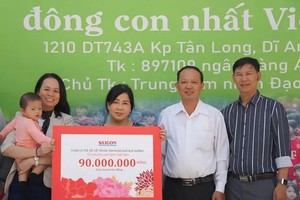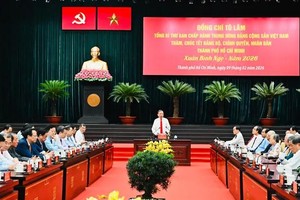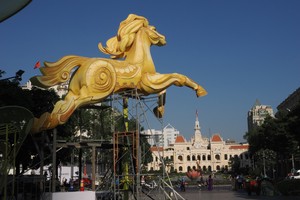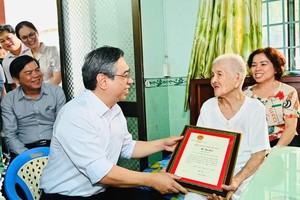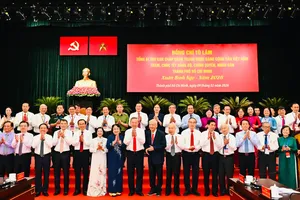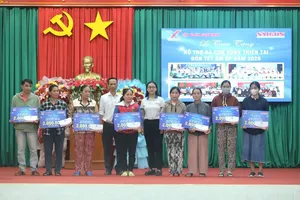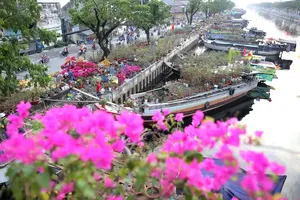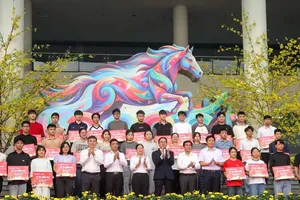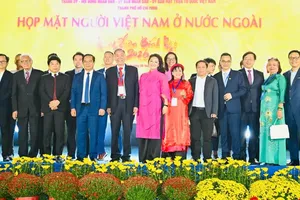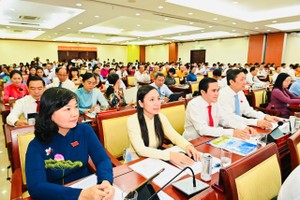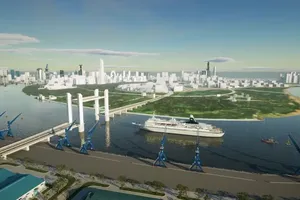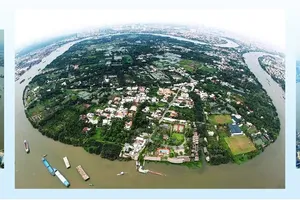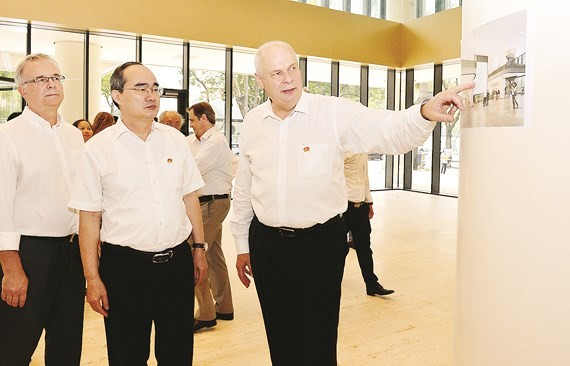
The smart cities' concept is a huge topic that will have great impact on the way we all will live in the future – on our working environment, housing, transport, health, recreation' Urbanization, population growth and digitalization are global trends posing both challenges and opportunities to cities around the globe.
In recognition of these global trends, the UN member states adopted the New Urban Agenda in October 2016, setting worldwide standards for creating livable cities for people thereby fostering urban development.
It is key for city governments to shape the process of developing into a smart city in a way that benefits all its citizens. In this process, digitalization should not be a goal in itself but rather a means in order to make a city more livable and loveable for its citizens – technology should serve their joint vision of a smart city. In order to be successful, it is thus essential to get all stakeholders and especially local people involved – participation is key.
The most valuable asset of a city are its citizens since they are the ones who know their city best. The Ho Chi Minh City government has been working on designing a smart city strategy since late 2016 and presented its plan in November 2017. As one of the main challenges of the city, transportation and infrastructure are key aspects of this plan.
Transportation in cities is always complex as space is limited. "I am thus convinced that both public transport and emobility will surely play a major role in the smart cities of our future", affirmed Ms. Daniela Scheetz.
In addition to that, there are many other aspects to be taken into account when thinking of a smart city. In 2017, after a year-long consultation process with experts from central governments, cities, science, economy and civil society, the German Congress on National Urban Development Policy introduced a “Smart Cities Charter”. This charter is intended to help cities in recognizing the opportunities and challenges of a smart future-oriented and responsible urban development.
Following this comprehensive approach, a smart city should be: - Livable and loveable – putting the needs of its citizens in the center and supporting local initiatives and creativity; - Diverse and open – using digital transformation to foster participation and overcome social and economic imbalances and exclusion; - Climate-neutral and resource-efficient – promoting eco-friendly, carbon-neutral and healthy mobility, energy, water, sewage and waste concepts; - Competitive and thriving, open-minded and innovative – using digital transformation to strengthen the local economy, stimulate innovation, and provide appropriate infrastructure and administrative options; - Responsive and sensitive, safe and freedom-enhancing – using sensor technology, data acquisition and processing as well as interaction with its citizens in a responsible way to continuously improve its services and processes while ensuring safe and free private, public and digital spaces for their citizens.
"I am convinced that the efforts of the Ho Chi Minh City government to develop Ho Chi Minh City into a future-oriented and sustainable smart city are very timely", added Ms. Daniel Scheetz.
Ho Chi Minh City is a dynamic and vibrant city and surely the economic powerhouse of Vietnam. The majority of German business companies active in Vietnam are doing business in, around and from Ho Chi Minh City. There is huge interest in Vietnam among German companies. At the end of 2017, the German Business Association (GBA) comprised almost 230 members and is expected to expand its membership even further in 2018. Among the German companies are big names like Siemens, Bosch, Lufthansa and adidas – and many smaller- and medium-sized companies from the backbone of the German economy.
Several of them are already engaged in the sectors related to the smart city concept: Siemens and Bosch in the field of smart mobility and Industry 4.0, or the members of the German Water Partnership (GWP) in the field of water and waste water. In addition to that, the Vietnamese-German University (VGU), a flagship project of the bilateral relations between Vietnam and Germany, has already in 2016 started to gather ideas and concepts for smart mobility in smart cities and is developing them into solutions suitable for Ho Chi Minh City.
The German House (Deutsches Haus Ho Chi Minh City), another flagship project of the bilateral relationship of Vietnam and Germany, is another German contribution to the development of Ho Chi Minh City into a smart city. Designed to be a hub for Germany in the South of Vietnam – and potentially for South East Asia in general – it will convene all major German organizations active in Ho Chi Minh City: the German Business Association (GBA), the Delegate of German Industry and Commerce in Vietnam (GIC/AHK), representations of German business companies, German cultural institutions like the Goethe-Institut and the German Academic Exchange Service (daad) and, of course, the German Consulate General.
In addition to being an example for smart organization and short ways, thereby increasing the potential for synergies and cooperation as well as the service for everyone interested in Germany, the German House is also an example of modern, energy-efficient and smart architecture. In the new year, Germany will continue to support Ho Chi Minh City on its path of developing into a smart, ever more livable and lovable city. I would like to use the occasion of Tet 2018 to wish all citizens of Ho Chi Minh City and of Vietnam in general good health, prosperity and success in the year of the Dog.
